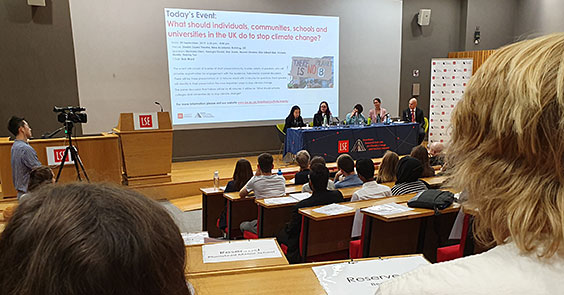
By Abi Wharton, Head of Geography, Global Perspectives and Politics
The UK will host the 26th UN Climate Change Conference of the Parties (COP26) in Glasgow on 31 October – 12 November 2021. The aim of this conference is to bring the world together to accelerate action towards the goals of the Paris Agreement and the UN Framework Convention on Climate Change.
As Alok Sharma, the COP President-Designate states: “The COVID-19 pandemic has brought devastation to millions around the world, disrupting many parts of the global economy. But climate change has continued, and it ultimately threatens life on earth. As countries begin to recover from the Coronavirus pandemic, we must take the historic opportunity to tackle climate change at the same time – to build back better, and greener. And we must. To keep the temperature of the planet under control – limiting its increase to 1.5 degrees – the science dictates that by the second half of the century, we should be producing less carbon than we take out of the atmosphere. This is what reaching ‘net zero’ means. The journey is already underway. Despite the pandemic, the direction of travel is changing. Around 70% of the world economy is now covered by net zero targets, up from less than 30% when the UK took on the Presidency of COP26. The world is moving towards a low carbon future.”
These aims must clearly be considered at a personal, local and national level to be successful globally. We are rightly very proud of our Bedales student body who are all too aware of the impact previous generations have had on the environment, and their responsibility to do more, and quickly, to protect the planet. Across the curriculum, students are conducting innovative academic research to prepare them to be the change makers of the future. Geography BAC students study a bespoke module on climate change unlike any other course at this level in the UK, and the Block 3 collaborative project between Philosophy, Religion and Ethics (PRE) and Geography focuses on ‘Who made my clothes?’, tackling globalisation, the winners and losers of a globalised economy, and the ethical implications of business practices on people and the environment. In Pre-U Global Perspectives students have chosen to research topics such as ‘The effect of COVID-19 on consumerism’ and ‘Is sustainability in the fashion industry sustainable?’ In tandem with this, students from across the year groups continue to be involved in a range of activities to raise awareness about the urgent need to do more.
As a prelude to the global conference taking place in Glasgow, East Hampshire MP Damian Hinds, in conjunction with East Hampshire District Council, has organised a local climate conference focusing on the action that can be taken locally to accelerate decarbonisation. The conference, which will involve Bedales students, will take place on Friday 8 October at The Maltings in Alton, to which everyone is invited. More information can be found on Damian Hinds’ website here and tickets can be booked here.



You must be logged in to post a comment.